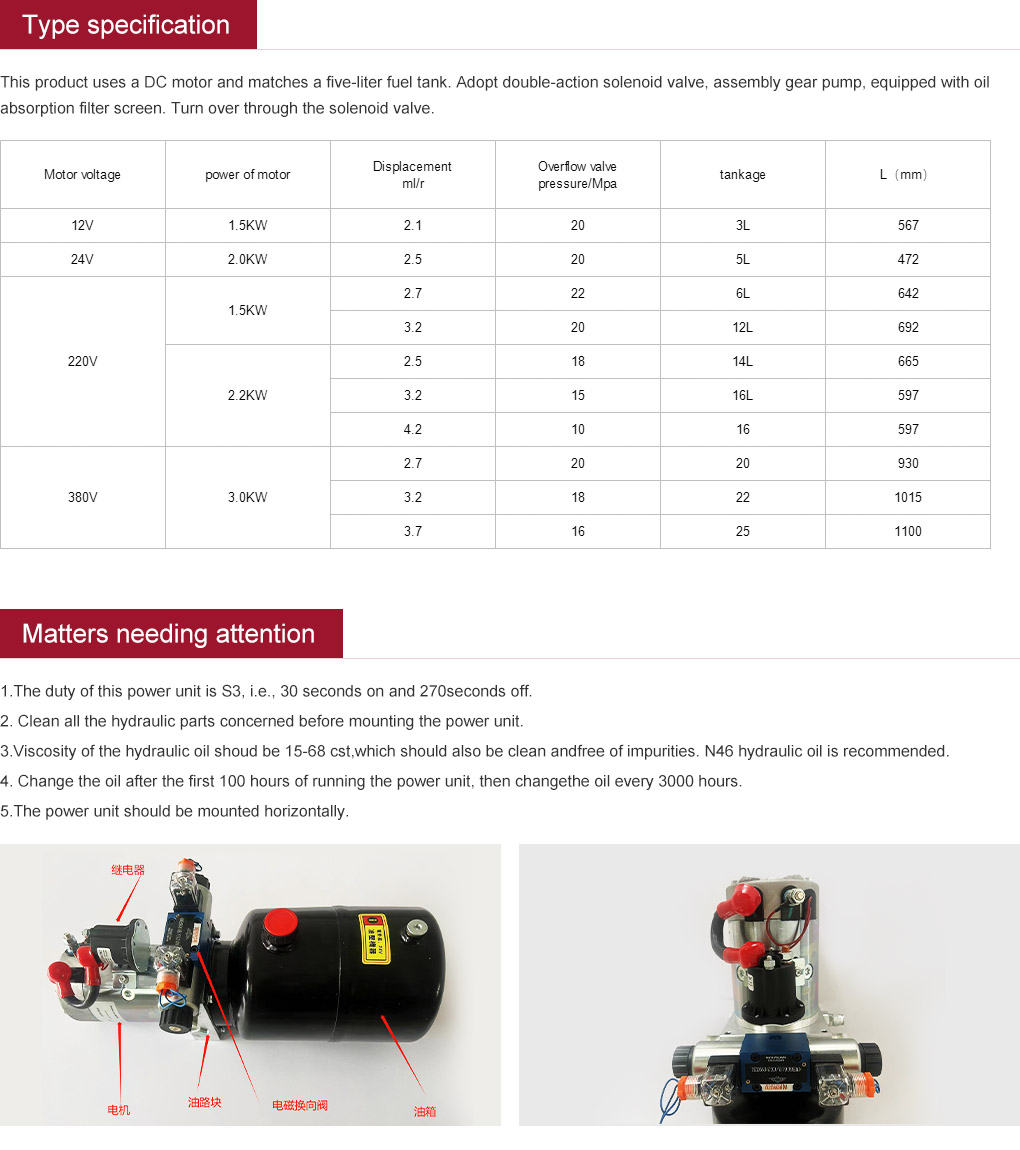Sep . 19, 2024 12:48 Back to list
mechanical hydraulic cylinder product
Understanding the Mechanical Hydraulic Cylinder Features and Applications
A mechanical hydraulic cylinder is a key component in various industrial applications that rely on hydraulic power to perform work. These cylinders convert fluid power into linear motion, which can be harnessed in a wide array of machinery, from construction equipment to manufacturing systems. As industries evolve and demand increases for efficiency and reliability, the importance of high-quality hydraulic cylinders cannot be overstated.
Basic Functionality and Design
At its core, a mechanical hydraulic cylinder consists of a barrel, piston, and rod. The barrel houses the hydraulic fluid, typically oil, which is pressurized to create movement. When the fluid is pumped into the cylinder, it exerts force on the piston, causing it to move. This action results in the extension or retraction of the rod, translating hydraulic energy into mechanical work.
The design of hydraulic cylinders can vary significantly based on their intended application. For instance, some cylinders are designed for high-pressure environments, while others may prioritize compactness or lightweight construction. Common design variations include double-acting cylinders, which use pressure for both extending and retracting the rod, and single-acting cylinders, which rely on gravity or a spring to return the rod to its original position.
Advantages of Hydraulic Cylinders
One of the primary advantages of mechanical hydraulic cylinders is their ability to generate significant force in a compact space. This makes them ideal for applications where space is limited, yet high power is needed. Additionally, hydraulic systems are highly efficient; they can operate heavy machinery with minimal energy loss compared to mechanical systems.
mechanical hydraulic cylinder product

Durability is another hallmark of hydraulic cylinders. Built to withstand the rigors of industrial environments, they can operate effectively under adverse conditions while requiring minimal maintenance. This robustness reduces downtime and operational costs, making them a popular choice among manufacturers.
Applications Across Industries
Mechanical hydraulic cylinders find applications across a multitude of sectors, including construction, agriculture, manufacturing, and automotive industries. In construction, for example, they are often utilized in excavators and bulldozers for tasks like lifting heavy loads or digging. In agriculture, they assist in the operation of tractors and harvesters, facilitating tasks that range from plowing to tilting and lifting.
Moreover, in the manufacturing sector, hydraulic cylinders play a crucial role in conveyor systems, robotic arms, and assembly lines, helping to automate processes and enhance productivity. Their versatility extends even to the automotive industry, where they are used in braking systems and lift tables, further showcasing their indispensable nature.
Future Trends in Hydraulic Cylinder Technology
As technology progresses, the future of mechanical hydraulic cylinders is likely to witness advancements that integrate smart technology and IoT capabilities. These developments can lead to improved efficiency, predictive maintenance, and even remote monitoring of hydraulic systems, ensuring optimal operation and longevity.
In conclusion, mechanical hydraulic cylinders are vital components that enhance productivity and efficiency across various industries. With their robust design and ability to produce significant force, they continue to be a cornerstone of modern machinery, and as technology evolves, so too will their capabilities and applications.
-
Fork Lift Power Units - Hebei Shenghan | Efficiency, Reliability
NewsJul.13,2025
-
1.5-Ton Turbocharged Cylinder-Hebei Shenghan|Hydraulic Solution,Energy Efficiency
NewsJul.13,2025
-
Auto Hoist Power Units-Hebei Shenghan|Efficiency&Industrial Lifting
NewsJul.13,2025
-
Double Acting Power Units-Hebei Shenghan|Hydraulic Solutions,Industrial Efficiency
NewsJul.13,2025
-
1.5 Ton Lifting Cylinder 70/82-40-290-535 - High-Performance Hydraulic Solution | Hebei Shenghan
NewsJul.13,2025
-
Fork Lift Power Units - Hebei Shenghan | Efficiency&Reliability
NewsJul.13,2025
